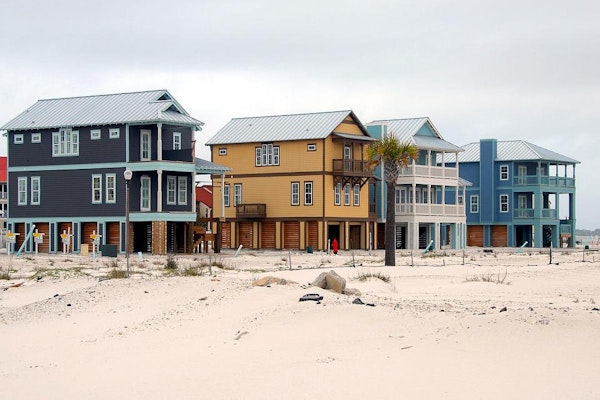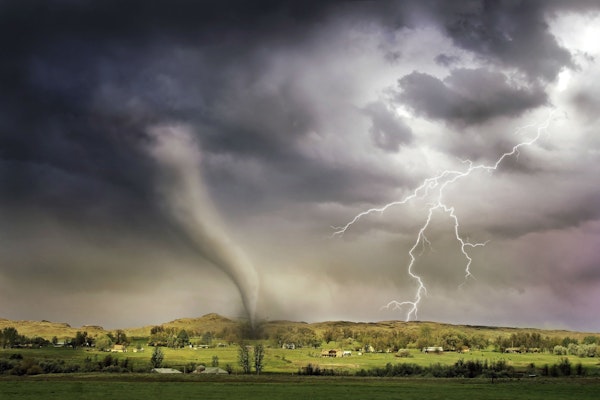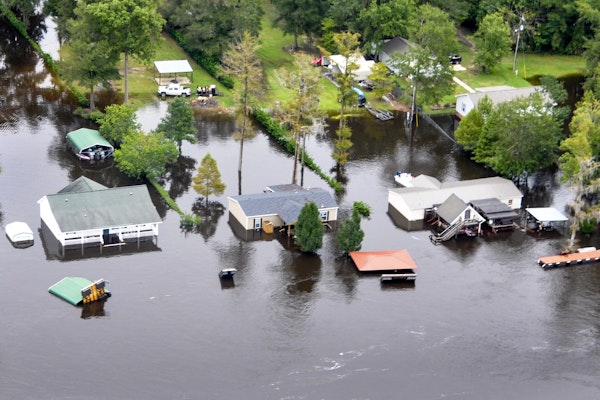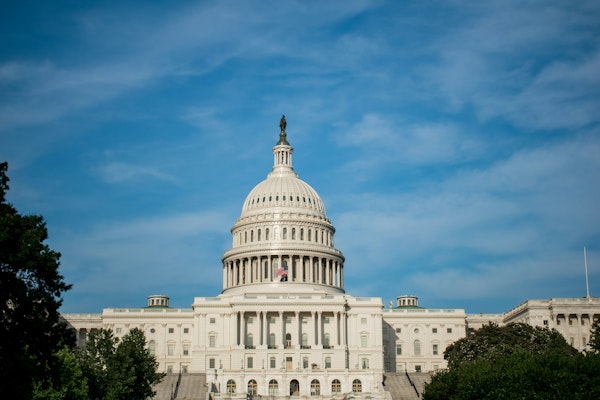
Rising Ocean Temps to Drive Massive Insured Losses From Cat 5 Hurricanes in Florida, East Coast
New research links a warming Atlantic to more extreme hurricane activity, with Florida, New York, and the Carolinas facing sharp increases in storm-driven insurance claims.
December 4, 2025
Catastrophe
Insurance Industry
Legislation & Regulation
Property
Risk Management
Florida
Massachusetts
New York
North Carolina
Rhode Island

$18 Million Verdict: NCAA Found Negligent in Former College Player’s Head-Injury Suit
A jury in Orangeburg County, South Carolina awarded $18 million to former college football player Robert Geathers and his wife Debra after finding that the NCAA was negligent in failing to warn him of the long-term effects of repeated head trauma.
October 29, 2025
Insurance Industry
Liability
Life & Health
Risk Management
South Carolina

Nor’easter and Alaska Storm Trigger Claims Risks With Fatalities, Flooding, and Power Outages
Back-to-back coastal storms disrupt infrastructure and displace residents, with early season indicators of increased catastrophe activity this fall.
October 14, 2025
Catastrophe
Insurance Industry
Marine
Property
Risk Management
Alaska
Massachusetts
New Jersey
New York
North Carolina

Rising Litigation Costs and Tort Reform Momentum Shape Liability Claims in 2025
Tort reform efforts in states like Georgia and Florida are reshaping the liability claims landscape in 2025, as litigation costs soar and attorney involvement rises rapidly.
August 1, 2025
Insurance Industry
Legislation & Regulation
Liability
Litigation
California
Delaware
Florida
Georgia
Louisiana

High Noon Recalls Vodka Seltzers After Label Mix-Up with Celsius Energy Drinks
High Noon is recalling vodka seltzers mistakenly labeled as Celsius energy drinks, leading to a risk of accidental alcohol consumption. No illnesses have been reported.
August 1, 2025
Insurance Industry
Legislation & Regulation
Property
Risk Management
Florida
Michigan
New York
Ohio
Oklahoma

Tech Giants Battle Over Who Verifies Kids’ Ages Under New State Laws
As states pass conflicting age verification laws, Meta, Apple, and Google are clashing over who should protect children online—apps or app stores.
July 25, 2025
Legislation & Regulation
Life & Health
Risk Management
Technology
Alabama
Louisiana
Mississippi
Ohio
South Carolina

Storm Surge Risk Threatens Billions in Coastal Property Value Across 20 States
Over 6.4 million homes in coastal U.S. states face moderate or greater storm surge risk, with $2.2 trillion in potential reconstruction costs, according to 2025 Cotality data.
June 2, 2025
Catastrophe
Legislation & Regulation
Property
Risk Management
Alabama
Connecticut
Delaware
District Of Columbia
Florida

Georgia Woman Sues Fertility Clinic Over Embryo Mix-Up That Led to Custody Battle
A Georgia woman claims a fertility clinic mistakenly implanted the wrong embryo, leading her to carry and give birth to another couple’s baby. She later had to surrender the child in an emotional legal battle.
February 21, 2025
Legislation & Regulation
Life & Health
Litigation
Risk Management
Georgia
South Carolina

South Carolina’s Liquor Liability Insurance Market Faces Deepening Crisis
South Carolina’s liquor liability insurance market has been unprofitable since 2017, with insurers losing $1.77 for every $1.00 earned. Claim frequency far exceeds neighboring states, intensifying concerns.
February 20, 2025
Insurance Industry
Legislation & Regulation
Liability
Risk Management
Florida
Georgia
North Carolina
South Carolina

Natural Disasters Caused $368 Billion in Damage Last Year, Aon Report Reveals
The 2025 Climate and Catastrophe Insight Report by Aon highlights how hurricanes, severe storms, and global flooding pushed disaster losses to $368 billion in 2024, exposing critical insurance gaps.
January 29, 2025
Catastrophe
Insurance Industry
Property
Risk Management
Florida
Georgia
North Carolina
South Carolina
Tennessee

Historic Snowstorm Brings Chaos to US South With Record-Breaking Cold and Snowfall
A rare snowstorm dumped record amounts of snow across the US South, causing travel chaos, frozen pipes, and widespread disruptions in states unprepared for such severe winter weather.
January 24, 2025
Catastrophe
Property
Risk Management
Technology
Arkansas
Florida
Georgia
Louisiana
Oklahoma

Rising Risks in Homeowners Insurance Demand Swift Action
The accelerating impacts of climate change, coupled with slow government response and human reluctance to prepare, are driving a homeowners insurance crisis in wildfire-prone states like California.
January 14, 2025
Catastrophe
Legislation & Regulation
Property
Risk Management
California
Colorado
Florida
Hawaii
Louisiana

Year-End Tornadoes Spark Surge in Insurance Claims Across Southern States
Severe storms from December 26–29, 2024, caused extensive tornado damage across 10 Southern states, generating over 2,700 insurance claims and highlighting a rising trend in extreme weather events.
January 6, 2025
Catastrophe
Insurance Industry
Property
Risk Management
Alabama
Mississippi
North Carolina
South Carolina
Texas

Rising Home Insurance Nonrenewals Reshape Housing Market Across the U.S.
As climate-driven disasters increase, nonrenewed home insurance policies are surging nationwide, impacting property values, mortgages, and economic stability in vulnerable communities.
December 30, 2024
Catastrophe
Legislation & Regulation
Property
Risk Management
Alabama
California
Colorado
Connecticut
Florida

Senate Report Blames Climate Change for Insurance Challenges as Industry Pushes Back
The Senate Budget Committee attributes rising non-renewal rates to climate change, but insurance experts highlight other drivers like inflation, litigation, and overbuilding.
December 19, 2024
Catastrophe
Legislation & Regulation
Property
Risk Management
California
Florida
Hawaii
Louisiana
Massachusetts





